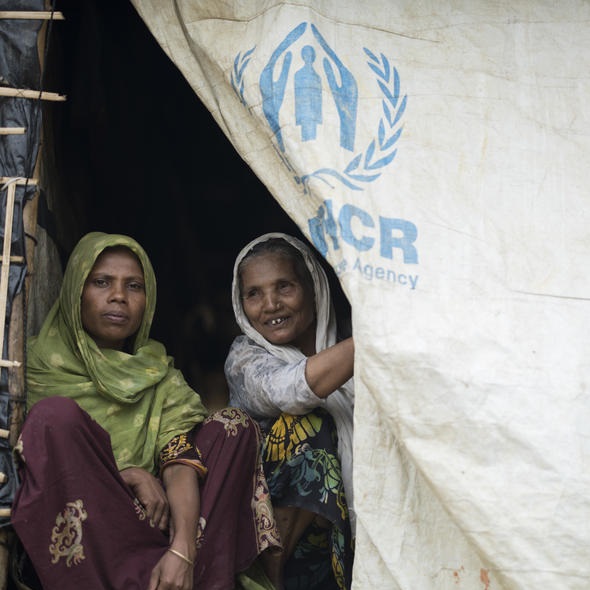COVID-19 Socioeconomic Survey, September 2021
Nepal, 2021
Get MicrodataIdentification
UNHCR_NPL_2021_SOCIO_Q3_v2.1
COVID-19 Socioeconomic Survey, September 2021
| Name | Country code |
|---|---|
| Nepal | NPL |
The COVID-19 Socioeconomic-/Cash-Based Intervention Post-Distribution Monitoring (CBI PDM) was conducted in September 2021 to assess the needs of the refugees in Eastern Nepal and Kathmandu. The survey consists of two parts. The first part of the survey measures the impact of COVID-19 on refugees' knowledge, behavior and health as well as refugees' economic livelihoods and the second part monitors the latest cash assistance programme. As a response to COVID-19, UNHCR has since the start of the pandemic launched multiple new cash grants and expanded existing programs. UNHCR's cash assistance complements governments' efforts by contributing with an additional safety net for vulnerable refugees and others left behind. Also during the course of 2021, UNHCR has continued to support the COVID-19 emergency response with cash assistance. UNHCR uses PDM as a mechanism to collect refugees' feedback on the quality, sufficiency, utilization and effectiveness of the assistance items they receive. In order to ensure that the cash assistance provided meets the intended programme objectives and that desired outcomes are achieved, UNHCR conducts regular post-distribution and outcome monitoring with a sample or all of the recipients.
Sample survey data [ssd]
Households
Version
v2.1: Edited, anonymous dataset for licensed distribution.
Scope
The household survey consists of two parts, each with 7 survey sections:
PART 1: Socioeconomic Assessment
- Household demographics
- Knowledge and Experience of COVID-19
- COVID-19 Behaviour/Social Norm
- Health
- Education
- Employment
- Receiving assistance and support (non-CBI)
PART 2: CBI PDM
- Receiving and spending the cash assistance (basic facts)
- Risks and problems: Did people face problems with the CBI? Did the CBI put POCs at additional risk?
- Markets and prices: Can POCs find what they need, and at a price they can afford, in the markets?
- Expenditure: What did people spend the money on?
- Outcomes: What changes is the cash assistance contributing to in POC households?
- Longer-Term Outcomes: Has the cash assistance helped put POC on the pathway to sustainable solutions?
- Accountability to Affected Persons: Is the CBI intervention accountable to persons of concern? (What preferences do people have over how assistance is delivered?)
POC = Persons of Concern to UNHCR
| Topic |
|---|
| Livelihood & Social cohesion |
| Cash Assistance |
| Domestic Needs/Household Support |
| Income Generation |
| Solutions |
| Basic Needs |
Coverage
The survey covers Eastern Nepal (Pathari sanichare and Beldangi refugee camps) and refugees living in Kathmandu.
The sample universe covers all urban refugee households (239) living in Kathmandu as well as all 2,409 Bhutanese refugee households living in Pathari sanichare and Beldangi camps.
Producers and sponsors
| Name |
|---|
| UNHCR |
Sampling
Stratified random sampling was implemented drawing two samples seperately for urban and Bhutanese (camp) refugees.
Sample weights were calculated for each household as the total number of refugee households in each strata divided by the total sample size in each strata.
Data collection
| Start | End |
|---|---|
| 2021-07-13 | 2021-09-09 |
| Name |
|---|
| UNHCR |
The data collection is supervised by UNHCR and data collection is administered remotely using UNHCR's data collection tool Kobo.
Data Access
| Name | Affiliation | |
|---|---|---|
| Curation Team | UNHCR | microdata@unhcr.org |
UNHCR (2021). Nepal: COVID-19 Socioeconomic Survey, September 2021. Accessed from: https://microdata.unhcr.org.
Metadata production
| Name |
|---|
| UNHCR |
2021
Metadata version
v1.0
